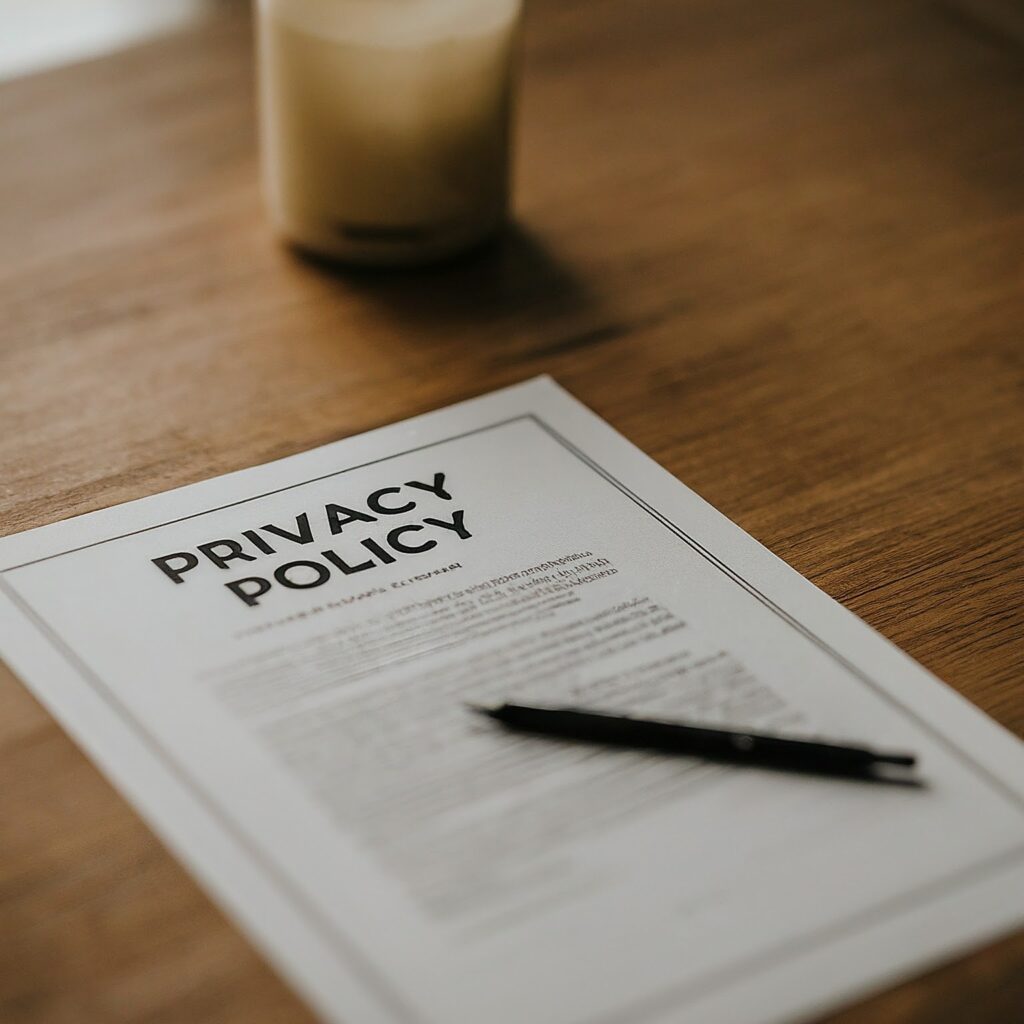Your cart is currently empty!
Calling Women ‘Household Objects’ Now Permitted On Facebook After Meta Updated Its Guidelines

Imagine walking into a room where calling a woman a “kitchen appliance” or a “piece of furniture” isn’t just tolerated—it’s permitted under new rules. Now, imagine that room is the digital space of Facebook and Instagram, where billions of people interact every day.
Meta’s latest update to its hateful conduct policy has sparked heated debate after it quietly loosened restrictions on gendered language. The change, which now allows users to refer to women as household objects in certain contexts, has raised alarm bells among digital rights advocates. While Meta argues this shift is meant to accommodate satire, humor, and cultural references, critics fear it opens the door to more normalized misogyny in online spaces already rife with harassment.

Understanding Meta’s Policy Shift
Meta’s latest policy revision has reignited debates about the fine line between free speech and harmful language. Previously, the company’s hateful conduct policy prohibited gender-based insults that dehumanized individuals, including comparisons to inanimate objects. However, the recent update now allows such language in certain contexts, including satire, humor, and cultural references. Meta claims that this adjustment is meant to foster a more open digital discourse by recognizing that not all uses of gendered language are intended as harassment. But critics argue that permitting such language—even in jest—sets a dangerous precedent, especially in online spaces where women already face disproportionate levels of abuse and objectification.
According to Meta, the reasoning behind this policy shift is to avoid over-policing language, particularly when it is used in a non-malicious or colloquial manner. The company insists that not every comparison to a household object or an inanimate thing is intended to dehumanize women, just as referring to someone as a “queen” or “rockstar” isn’t inherently offensive. Under these new rules, a phrase like “she’s a total vacuum when it comes to gossip” would now be permissible, provided it is not accompanied by direct threats or explicit harassment. This approach attempts to introduce more nuance into content moderation, acknowledging that language can be complex and subjective. However, critics worry that this ambiguity will lead to an increase in gender-based derogatory speech, creating a loophole where misogyny is masked as humor.
The broader concern is that loosening these restrictions could further normalize language that diminishes women’s agency and identity. In a digital world where women are already frequent targets of online abuse, advocacy groups argue that even subtle forms of dehumanization contribute to a hostile environment. While Meta frames this as a policy refinement, skeptics see it as a step backward in the fight against online harassment. As major social platforms continue to reshape their moderation policies, this update raises pressing questions: Should social media companies be responsible for mitigating cultural biases in language, or should they step back and allow users to define acceptable discourse?
Gendered Language and Online Harassment
Words shape culture, and when language diminishes or objectifies a group of people, it often paves the way for deeper societal issues. Allowing women to be compared to household objects—whether under the guise of humor, satire, or casual conversation—may seem trivial to some, but experts warn that it can contribute to a broader culture of gender-based disrespect. Research on online harassment has consistently shown that digital abuse disproportionately targets women, particularly those in public-facing roles such as journalists, activists, and politicians. By relaxing restrictions on language that dehumanizes women, Meta risks reinforcing stereotypes that reduce them to roles of servitude or object-like status, which in turn can embolden misogynistic behavior both online and offline.
The concern isn’t just theoretical—it’s rooted in well-documented patterns of online harassment. A 2021 study by the Pew Research Center found that 33% of women under 35 had experienced severe online abuse, including stalking, sexual harassment, and sustained bullying. Many of these interactions begin with casual derogatory language, which gradually escalates into more aggressive forms of harassment. When social media platforms tolerate or permit language that devalues women, they may inadvertently signal that such rhetoric is acceptable, leading to an environment where gendered harassment flourishes. While Meta maintains that its other policies—such as rules against direct hate speech and threats—remain intact, critics argue that the allowance of demeaning language makes those safeguards weaker, as it can be difficult to draw a clear line between “harmless” objectification and outright verbal abuse.
Beyond the immediate impact on social media interactions, this policy shift also reflects a larger conversation about digital safety and corporate responsibility. Tech companies often justify changes in content moderation by citing free expression, but at what cost? When language that dehumanizes or objectifies women becomes more acceptable under platform policies, it has real-world consequences. It can influence societal norms, workplace dynamics, and even policy decisions on gender equality. Advocates for digital safety argue that if platforms truly wish to create inclusive spaces, they must take a stronger stance against all forms of language that reinforce inequality.

Free Speech vs. Protection: Where Should Platforms Draw the Line?
The tension between free expression and online safety is one of the most persistent dilemmas in digital policy. Social media platforms like Meta often position themselves as defenders of free speech, arguing that users should be able to express themselves without excessive moderation. However, critics counter that freedom of speech does not mean freedom from consequences—especially when speech contributes to harm, discrimination, or harassment. By allowing women to be referred to as household objects under the guise of humor or cultural context, Meta is making a calculated decision about where it believes the boundaries of acceptable discourse should lie. The question is: who benefits from this shift, and who bears the cost?
Historically, social media companies have struggled to balance content moderation with concerns about censorship. Meta’s policy change is part of a broader industry trend where platforms tweak their rules in response to public pressure, legal challenges, or shifting cultural norms. Twitter (now X), for instance, has relaxed certain content moderation policies under new ownership, prioritizing “free speech absolutism” over previous safeguards against hate speech. Meanwhile, TikTok and YouTube have faced scrutiny for their handling of misogynistic and extremist content, leading to calls for stricter enforcement. Meta’s latest update follows this pattern of recalibration, but in doing so, it raises concerns about whether platforms are prioritizing engagement metrics over user safety.
For many, this debate boils down to a fundamental question: Should tech giants be responsible for shaping societal norms, or should they remain neutral arbiters of speech? Meta’s decision suggests that it sees itself as the latter, choosing to give users more leeway in their language while maintaining baseline protections against direct threats and explicit harassment.
What This Means for Social Media Users
For the everyday social media user, Meta’s policy update might seem like a minor technical adjustment, but its ripple effects could be far-reaching. Women, particularly those who are active in public discourse—such as journalists, activists, and content creators—may now find themselves more vulnerable to subtle yet persistent forms of online harassment. While explicit hate speech and direct threats remain prohibited, this policy shift signals that certain forms of gendered objectification are now more permissible, potentially emboldening users who already toe the line of harassment. As a result, some women may feel an increased need to self-censor, block or report more users, or even disengage from online discussions altogether.
This change also raises questions about how effectively Meta’s content moderation systems will enforce the remaining safeguards. If the policy now permits calling women “kitchen appliances” or “pieces of furniture” in a “non-hateful” context, how will moderators distinguish between humor and harm? Automated moderation tools, which already struggle to interpret context accurately, may fail to flag harmful comments disguised as jokes. Similarly, human moderators—often working under tight constraints—may be inconsistent in their enforcement. This uncertainty leaves users in a precarious position, as those targeted by demeaning language may have little recourse if their reports are dismissed under the new guidelines.
Ultimately, this policy shift underscores the importance of digital literacy and self-advocacy for social media users. While platforms like Meta shape the broader rules, users still have agency in how they engage with online communities. Reporting tools, content filters, and privacy settings remain critical in mitigating harmful interactions, but broader societal conversations about online behavior are just as crucial. If history has shown anything, it’s that social media policies evolve in response to public pressure—meaning that how users react to these changes could influence whether Meta ultimately stands by its decision or is forced to reconsider.
The Ongoing Debate on Digital Safety and Expression
Meta’s decision to relax restrictions on gendered language reflects a larger, ongoing debate about the role of social media in shaping public discourse. While the company frames this policy shift as a way to balance freedom of expression with content moderation, critics argue that it risks normalizing language that subtly reinforces gender-based discrimination. In a digital world where words carry real weight, even small policy changes can have significant consequences—especially for those who already face higher levels of harassment online.
The challenge for social media platforms remains the same: how to allow open expression without enabling harm. While Meta maintains that stronger safeguards against direct hate speech and threats remain in place, this update raises concerns about how effectively those protections will function when demeaning language is permitted under the guise of humor or satire. It also highlights the limitations of relying on content moderation alone to combat online misogyny. Real change, advocates argue, requires not just platform policies but broader cultural shifts in how we define respect and accountability in digital spaces.
As this policy takes effect, its real impact will be measured not just by corporate statements but by the experiences of the people using these platforms every day. Will this change embolden online toxicity, or will it be a negligible shift in the ever-evolving landscape of social media? The answer lies not only in Meta’s enforcement but in how users, advocacy groups, and society at large continue to push for a more inclusive and respectful digital environment.
